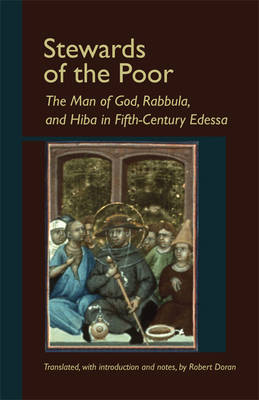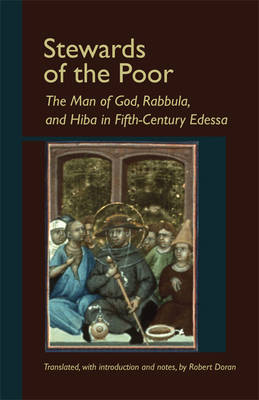
- Retrait gratuit dans votre magasin Club
- 7.000.000 titres dans notre catalogue
- Payer en toute sécurité
- Toujours un magasin près de chez vous
- Retrait gratuit dans votre magasin Club
- 7.000.0000 titres dans notre catalogue
- Payer en toute sécurité
- Toujours un magasin près de chez vous
Stewards of the Poor
The Man of God, Rabbula, and Hiba in Fifth-Century Edessa Volume 208
Description
Three remarkable fifth-century Christians of the Syrian city of Edessa are profiled here: one a pauper by choice, and two bishops of opposing theological opinions.
- The 'Man of God', born to rank and privilege, identified completely with the poor, spending his days fasting and praying constantly. His quiet holiness deeply influenced.
- Rabbula, convert, monk and bishop, who championed the poor and battled injustice, but dealt harshly with those who held what he considered unorthodox beliefs. During the christological controversies surrounding Nestorius, he supported Cyril of Alexandria and exiled.
- Hiba, a supporter of the school of Antioch and an advocate of Theodore of Mopsuestia and Nestorius. He regarded Rabbula as a tyrant, yet, in the turbulent theological climate of the day, succeeded him as bishop of Edessa, only to reap the fury of the cyrillian party.
Two undercurrents of fifth-century Christanity ebb and flow in these documents. The Life of Hiba reflects the intensity of the Nestorian-Cyrillian controversy, while The Life of the Man of God and The Life of Rabbula emphasize as the chief christian duty of the clergy the care of the poor. Whatever the Church has, it hold only as a steward for the poor.
Spécifications
Parties prenantes
- Editeur:
Contenu
- Nombre de pages :
- 226
- Langue:
- Anglais
- Collection :
- Tome:
- n° 208
Caractéristiques
- EAN:
- 9780879073084
- Date de parution :
- 01-06-06
- Format:
- Livre broché
- Format numérique:
- Trade paperback (VS)
- Dimensions :
- 144 mm x 217 mm
- Poids :
- 272 g

Les avis
Nous publions uniquement les avis qui respectent les conditions requises. Consultez nos conditions pour les avis.





